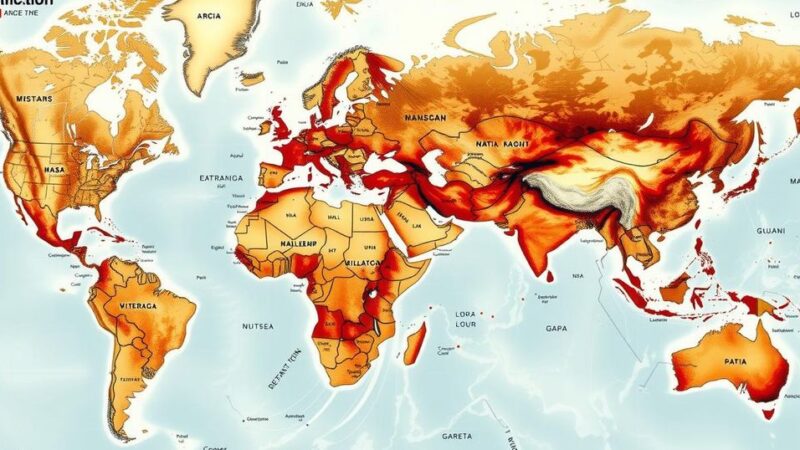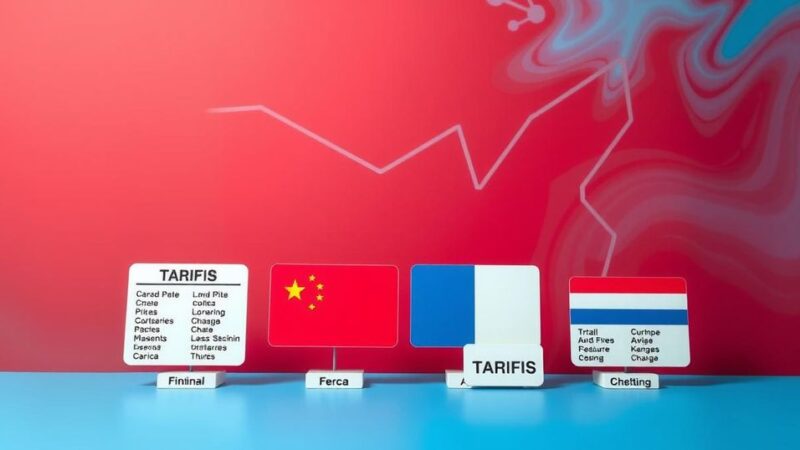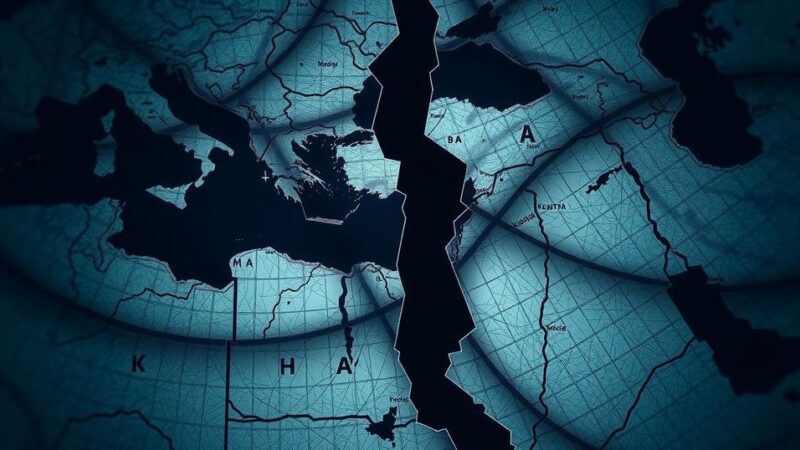The US has conducted airstrikes against Iranian-backed Houthis, and Israel has targeted Hamas, leading to confusion in Iran regarding its next moves. Iran’s leadership is cautious of escalation, and diplomatic efforts with Russia and China are being prioritized. However, maintaining support for regional allies like the Houthis poses a significant challenge as Iran navigates tightening sanctions and military hostilities.
In recent developments, the United States has initiated airstrikes against Iranian-backed Houthi forces in Yemen, while Israeli Defense Forces have targeted Hamas in Gaza. These simultaneous actions have left Iran in a state of uncertainty regarding its response, as it remains apprehensive of an escalated confrontation with the US, which it believes it is unprepared for. Compounding the dilemma, Iran’s Supreme Leader has urged caution towards any overtures from the Trump administration, creating a significant quandary for Tehran.
On a diplomatic front, Iranian Foreign Minister Abbas Araqchi met with Russian Deputy Foreign Minister Alexander Grushko in Tehran to enhance bilateral relations. During the meeting, they emphasized the importance of cooperation in fostering regional peace and stability. Iran has indeed supplied Russia with drones intended for use in Ukraine, illustrating the growing strategic partnership. Araqchi stressed the need for further development of ties between Iran and Russia, indicating a shift towards deeper alliances within the region.
The discussions also encompassed previous meetings in China involving Russian, Chinese, and Iranian delegations focusing on nuclear issues and regional interests. These aims align with Iran’s desire to consolidate support from both Russia and China amid increasing tensions with the US and its allies. Araqchi condemned military aggressions by the US and UK in Yemen, as well as Israeli actions against Palestinians, advocating for a greater response from Muslim nations, particularly during Ramadan.
Iran is now navigating complex diplomatic strategies, seeking to strengthen its relations with Russia and China while addressing sanctions and engaging in Islamic causes against perceived aggressions from the US and Israel. Iranian representatives, including UN ambassador Amir-Sa’eed Iravani, reiterated the condemnation of what they view as reckless US actions and rhetoric. However, Iran faces the challenge of maintaining its influence over allies, such as the Houthis, amidst the growing hostilities in the region.
The foundational support that Iran provided to diverse proxies, including the Houthis and Hezbollah, now raises the question of how far the regime can distance itself from these groups without incurring losses in influence. As sanctions tighten and its proxies falter, Iran must tread carefully to prevent a collapse that could transform these alliances from assets into liabilities.
In conclusion, Iran is currently experiencing a complex diplomatic and military landscape marked by US strategies in Yemen and Israeli operations in Gaza. While seeking to strengthen ties with Russia and China, Iran faces significant challenges in managing its regional proxies and asserting its influence amid increasing international isolation. The outcomes of its diplomatic maneuvers and military support could shape Iran’s future positioning in the region and its relationships with allies, necessitating a cautious approach to avoid exacerbating the situation.
Original Source: www.jpost.com






